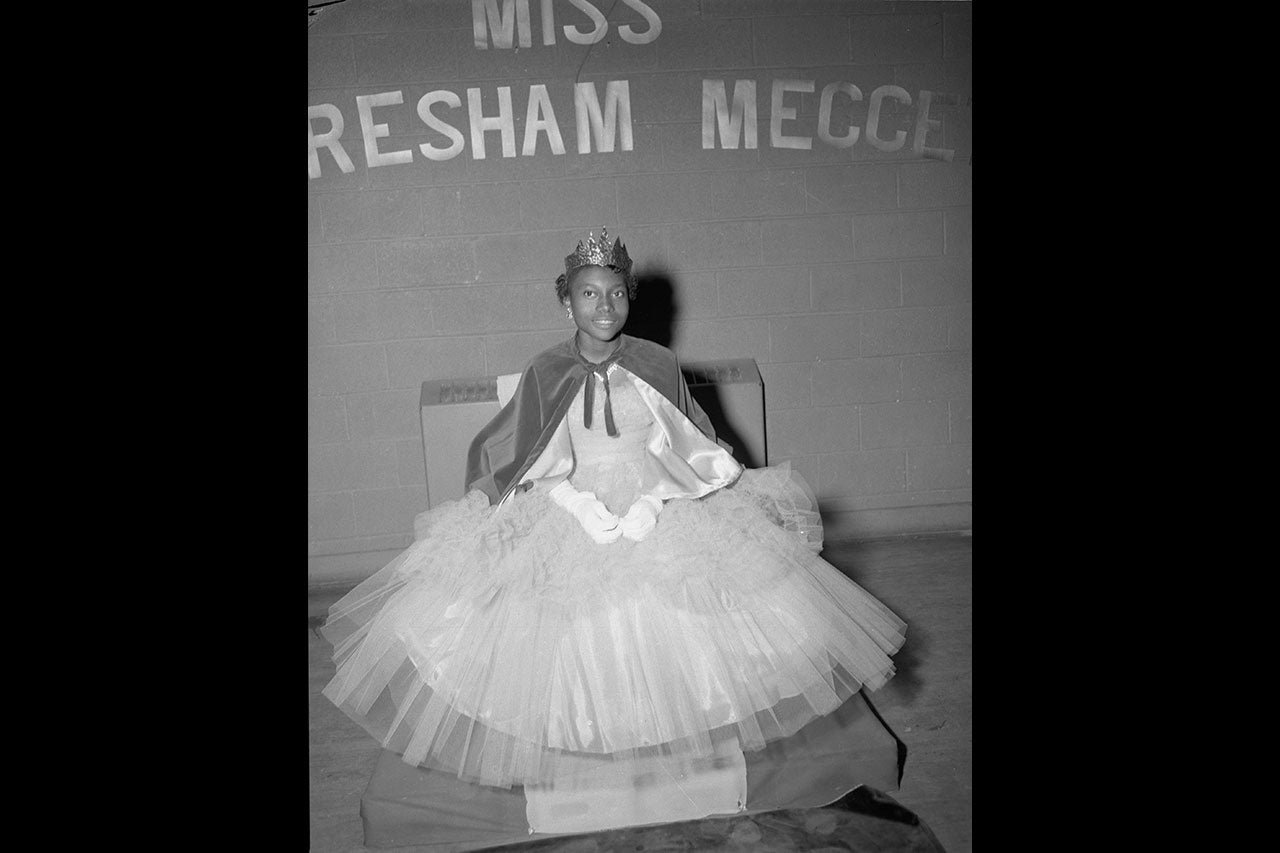Above: Black and white photograph of Gresham-Meggett School Homecoming Queen, from the Walter N. Boags Collection. (Images courtesy of Avery Research Center for African American History and Culture)
The Coastal Community Foundation (CCF) has awarded the College of Charleston’s Avery Research Center for African American History and Culture $20,000 as a part of the Facebook Grant for Sustaining Black Communities. The Avery Research Center was one of 37 local Black-led and Black-serving nonprofits that CCF identified as supporting innovation, creativity and resiliency.

The front view of a circular snack bar in the Lincoln Theatre. Previously located at 601 King St. in downtown Charleston, the Lincoln Theatre was once an African American entertainment venue. (Image is part of the Walter N. Boags Colletction)
The Avery Research Center will use the funds to digitize some of its vulnerable photograph collections, including the Coards Studio photographs and records and the photographs in the Walter N. Boags collection. Some items, such as the negatives in the Boags collection, are degrading and in urgent need of digitization to preserve the historic images.
Walter Boags worked as a photographer in the City of Charleston in the mid-1900s. His studio, Boags Modern Arts Photography was located at 32 Spring St. Coards Studio was a photography studio owned and operated by Joseph and Rachel Coards until the late 20th century and was located at 78 Line St. The photographs in the Coards and Boags collections document the lives, activities, organizations and events that sustained Black Charleston during those years.
Through the CCF grant, the Avery Research Center will be able to hire a part-time archivist and a College of Charleston student employee to assist with the digitization project.
“We are grateful to the Coastal Community Foundation for this opportunity,” says Erica Veal, project archivist and interpretation specialist at the Avery Research Center. “The Avery [Research Center]’s mission is not just to gather collections, but to preserve and promote them. By digitizing these images and making them accessible to researchers and the public via social media, we proclaim that Black lives matter — that we were here. In doing so, we hope to inspire current and future generations to build on these legacies.”
Read the full story on Momentum, CofC’s digital philanthropy publication.




